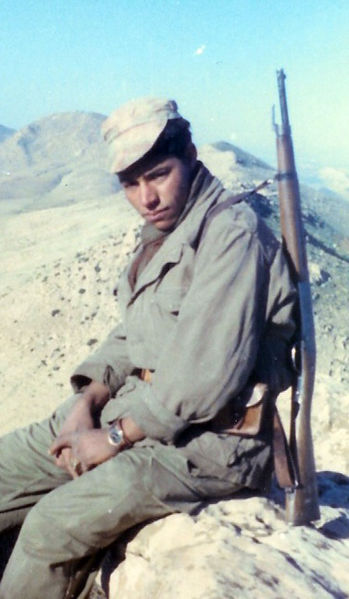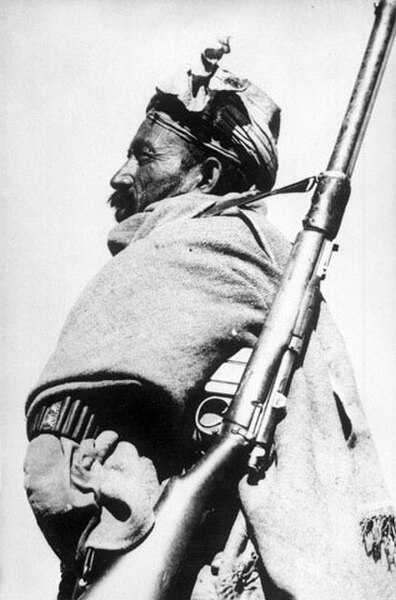Harki is the generic term for native Muslim Algerians who served as auxiliaries in the French Army during the Algerian War from 1954 to 1962. The word sometimes applies to all Algerian Muslims who supported French Algeria during the war. The motives for enlisting were mixed. They are regarded as traitors in independent Algeria and tens of thousands of them were killed after the war in reprisals despite the Évian Accords ceasefire and amnesty stipulations. President Charles de Gaulle controversially made the decision to not give the Harkis sanctuary in France, viewing them as "soldiers of fortune" who should be gotten rid of as soon as possible.
A young Harki, French Algeria. c. 1961.
A World War II Harki veteran, French Algeria, c. 1961
Auxiliaries are support personnel that assist the military or police but are organised differently from regular forces. Auxiliary may be military volunteers undertaking support functions or performing certain duties such as garrison troops, usually on a part-time basis. Unlike a military reserve force, an auxiliary force does not necessarily have the same degree of training or ranking structure as regular soldiers, and it may or may not be integrated into a fighting force. Some auxiliaries, however, are militias composed of former active duty military personnel and actually have better training and combat experience than their regular counterparts.
A military auxiliary radio system operator at Marine Corps Logistics Base Albany in Albany, Georgia in 1983
A member of the Khyber Rifles c. 1948.
Two Ordnance Wrens in Liverpool reassemble a section of a pom-pom gun during World War II
Two local defence volunteers receiving instruction on either a Pattern 1914 or M1917 Enfield rifle






